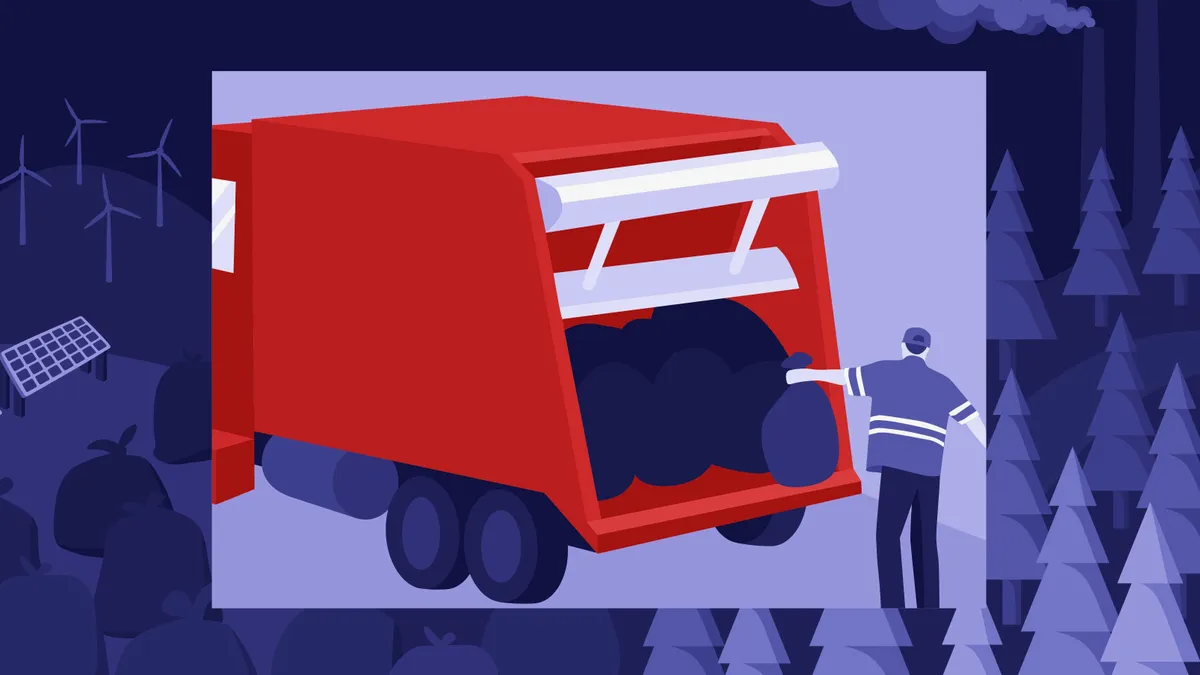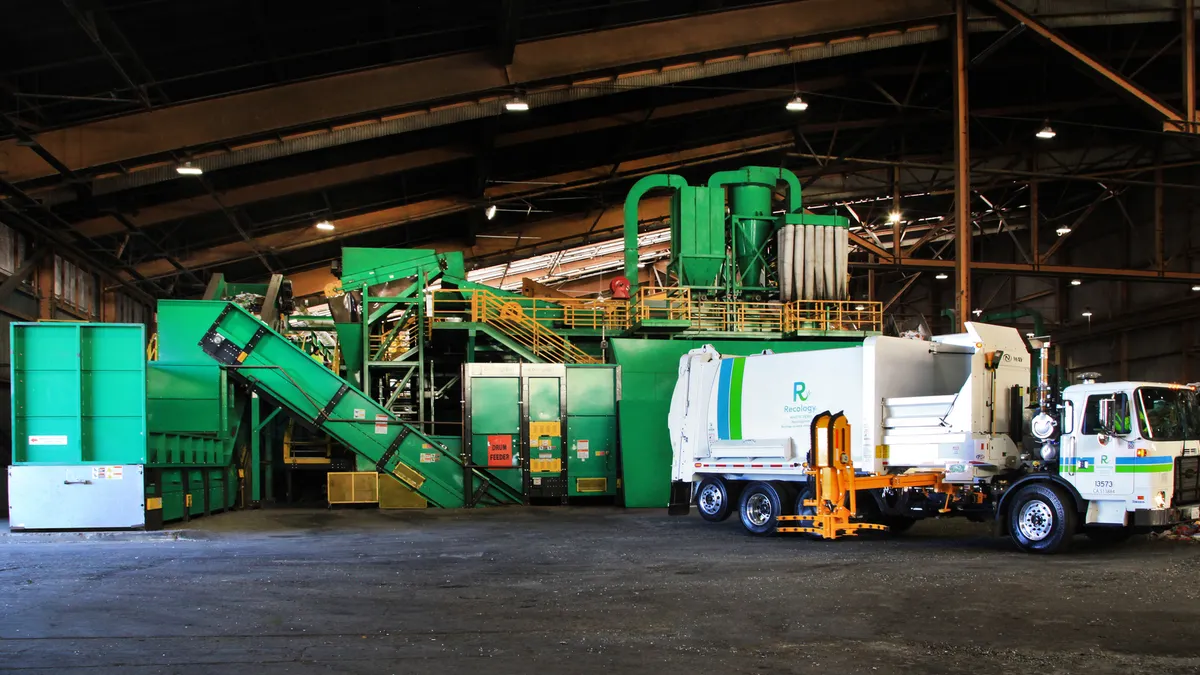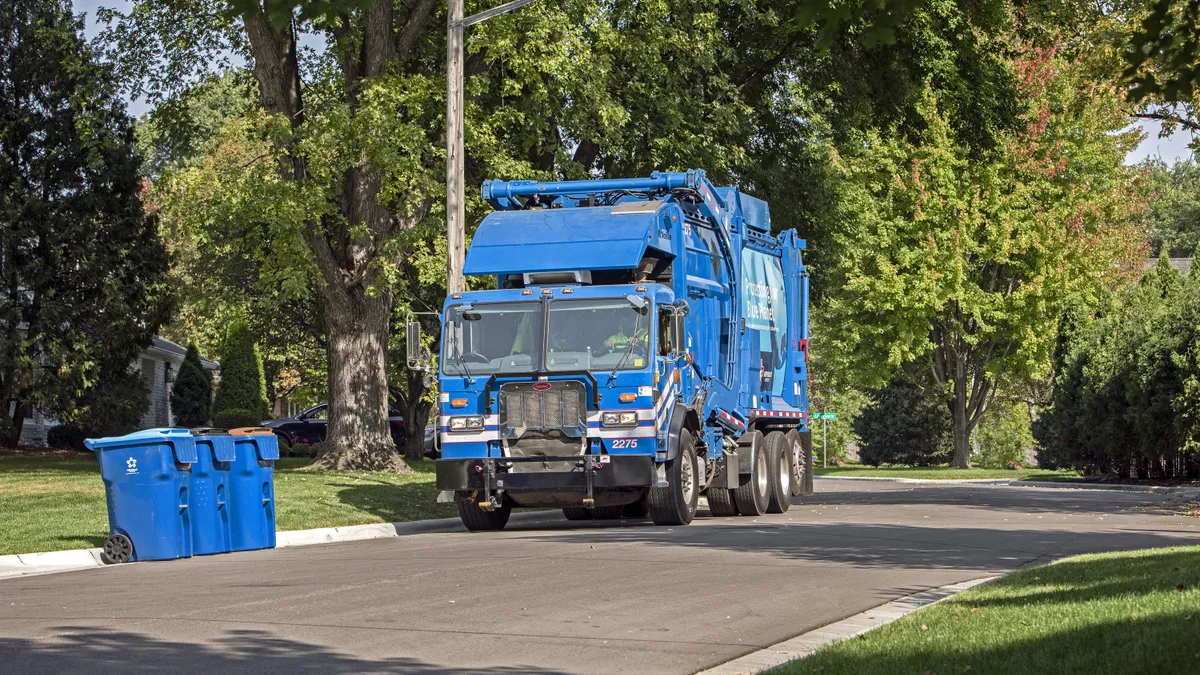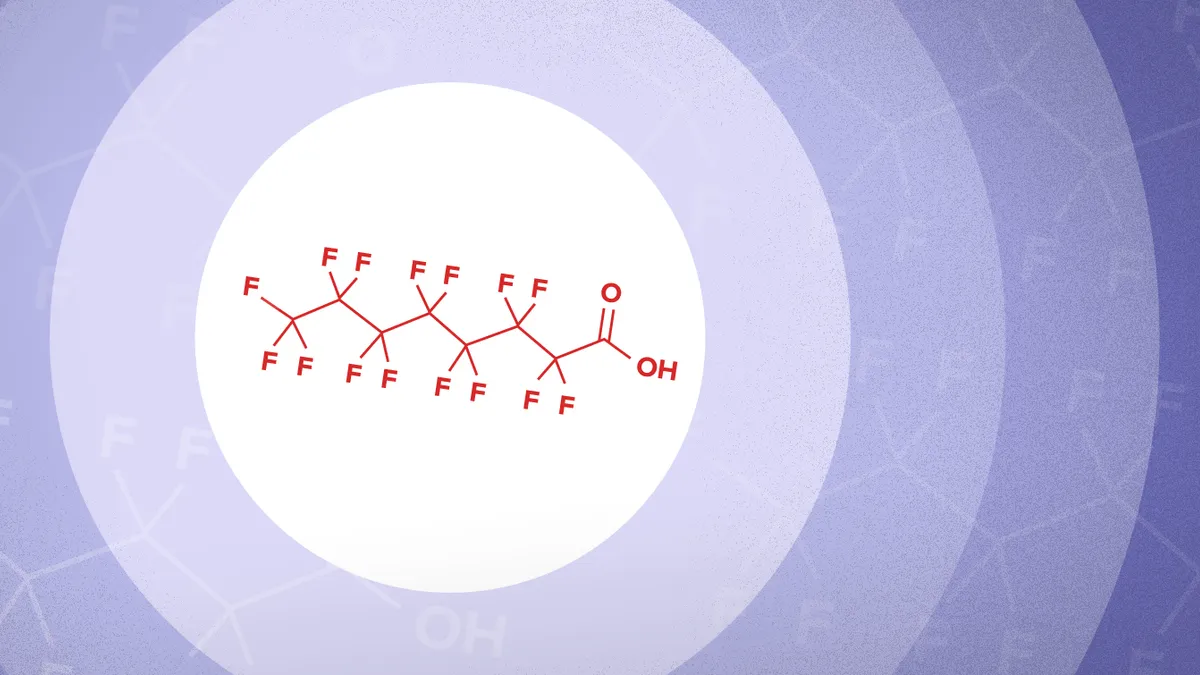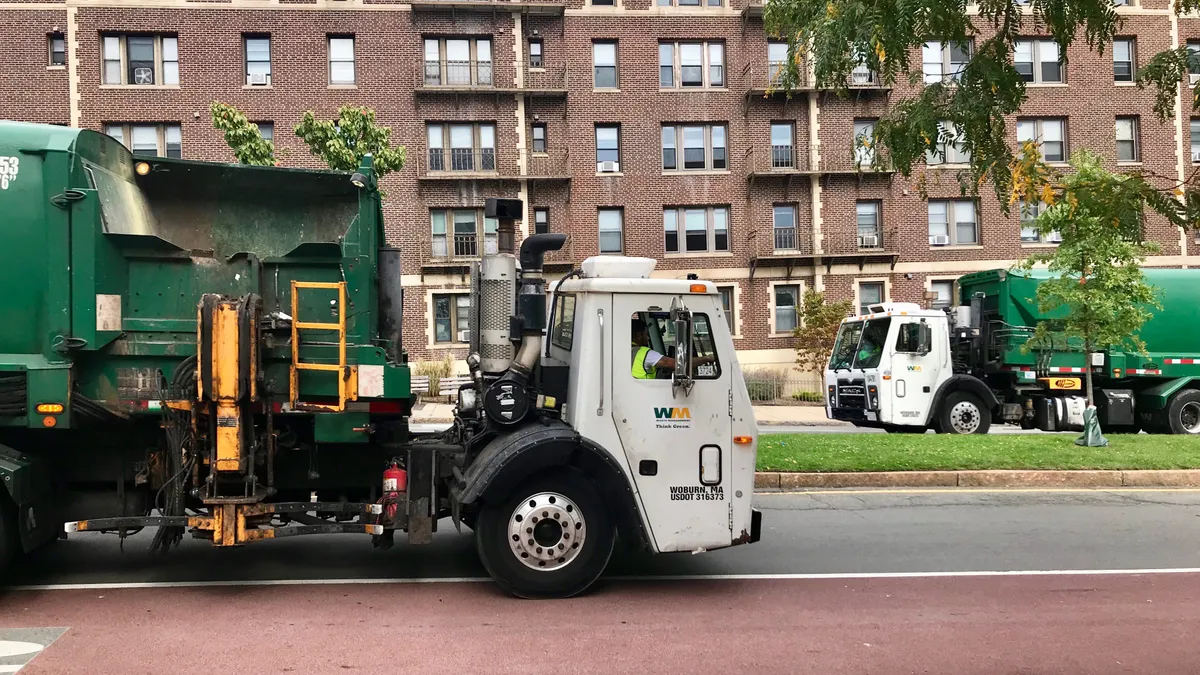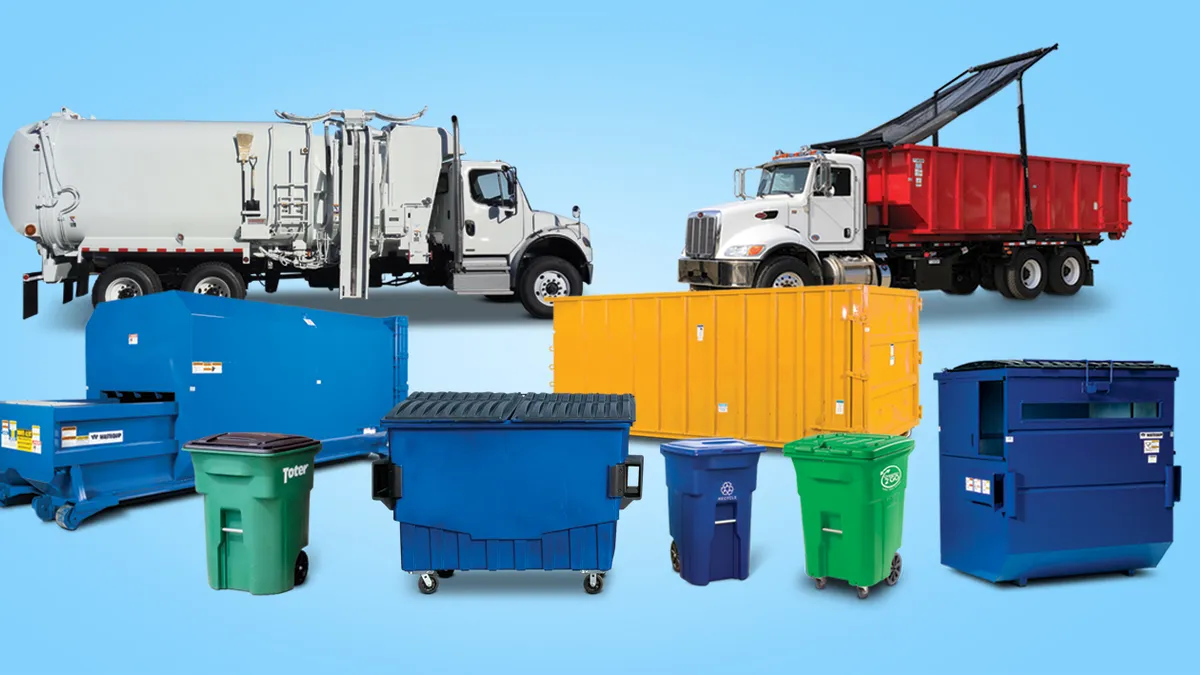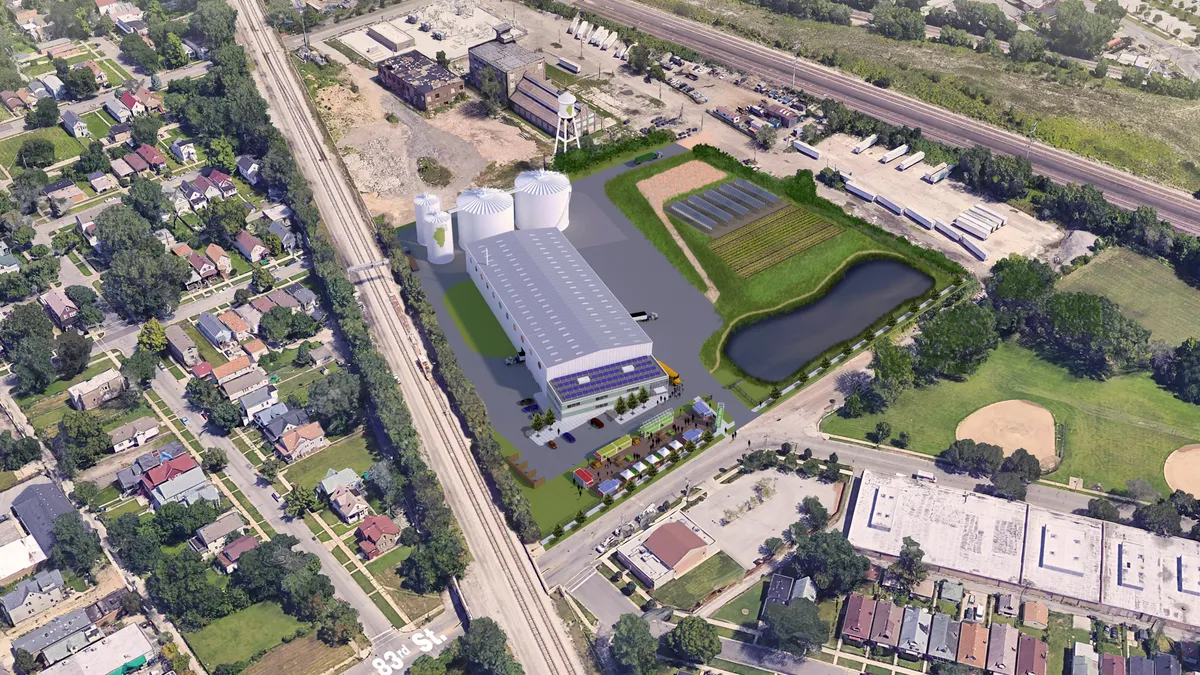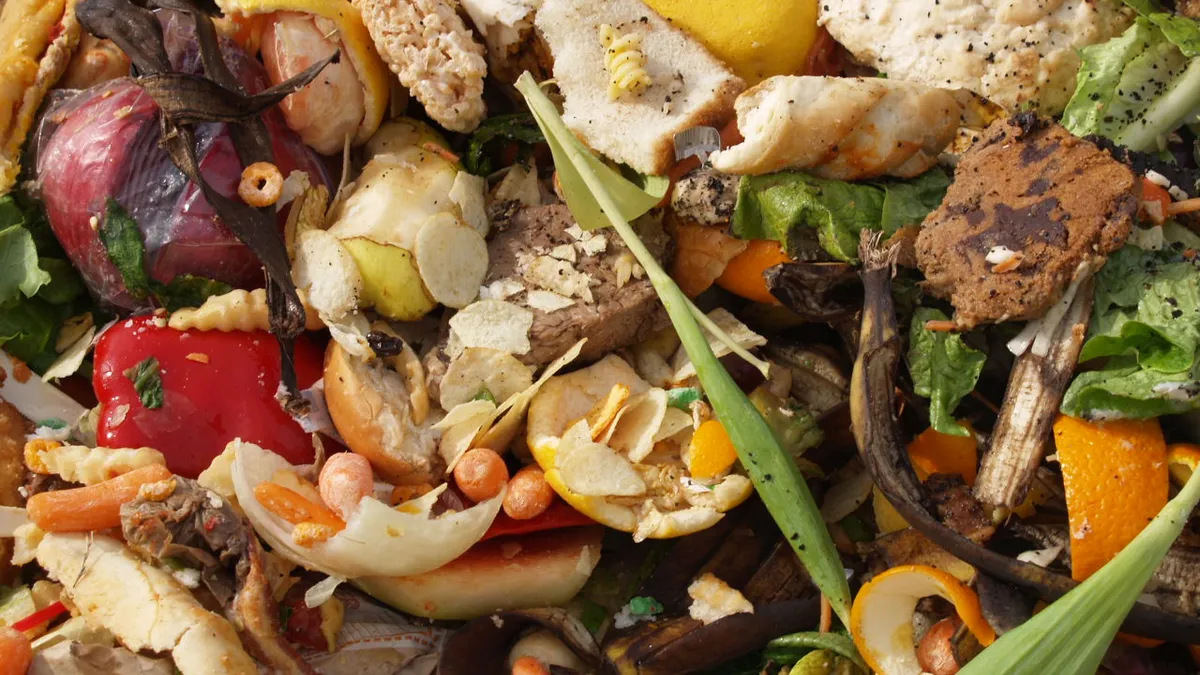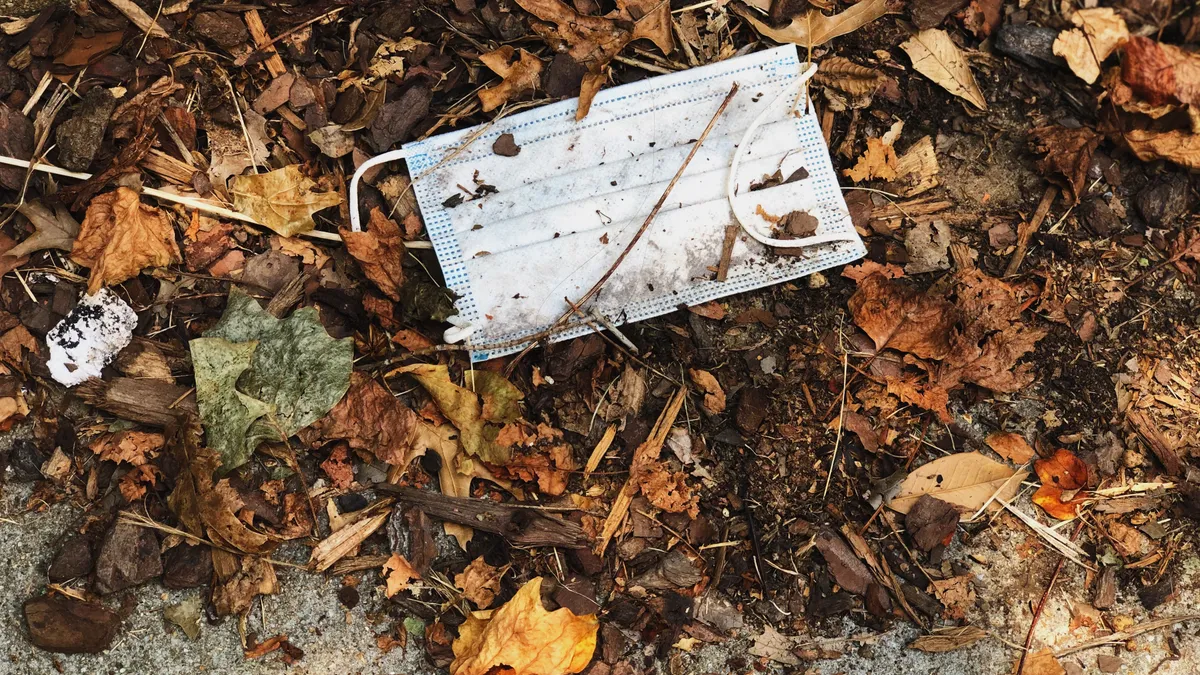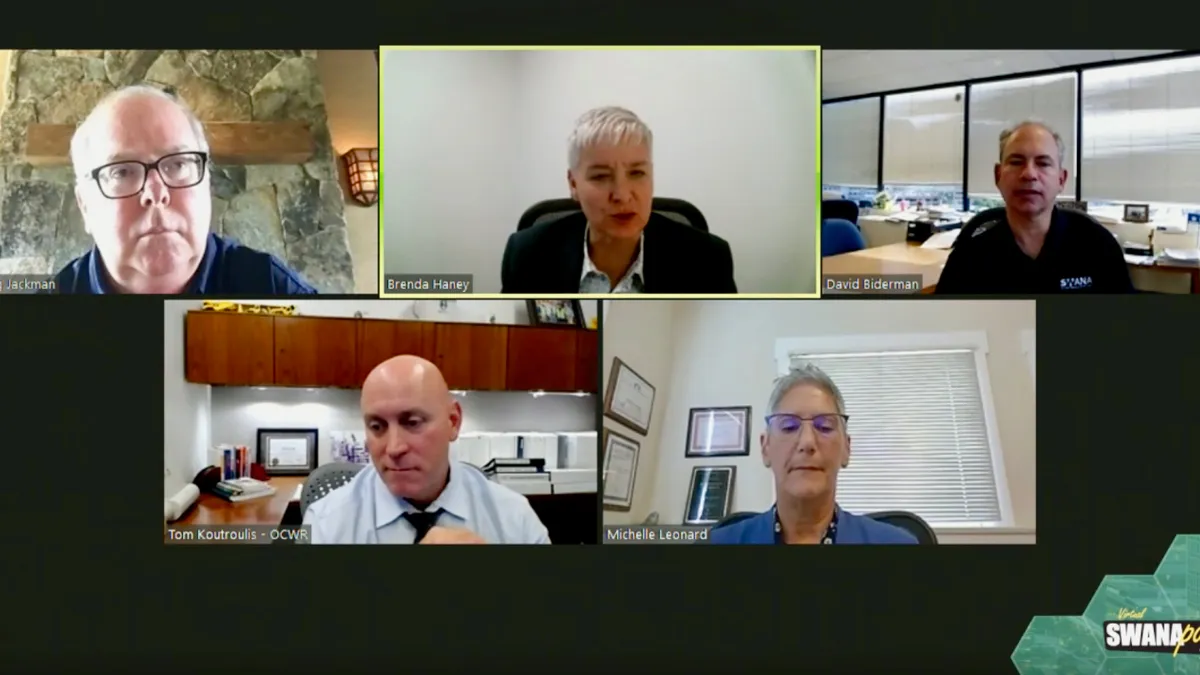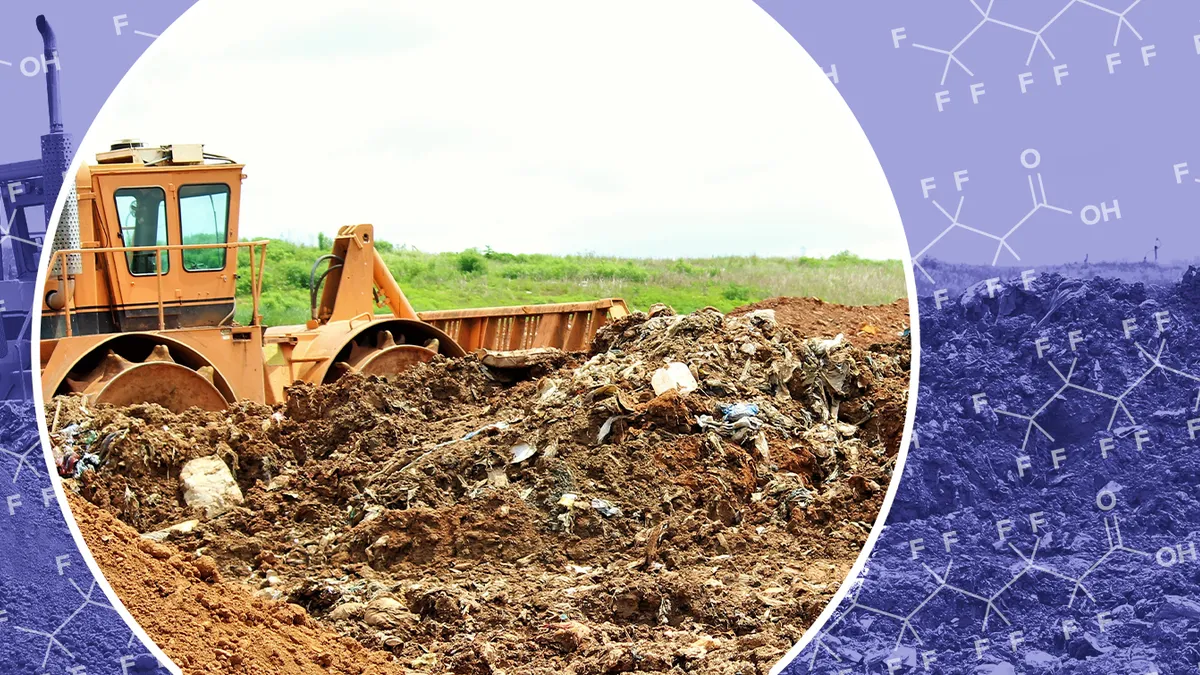Organics: Page 22
-
Deep Dive
US waste and recycling sector faces mounting risks and opportunities from climate change
As the industry increasingly recognizes its contribution to climate change and sees business opportunities in potentially mitigating those effects, the sector could be at a notable inflection point in the years ahead.
By Cole Rosengren • Nov. 18, 2020 -
Opinion
Biden's Build Back Better is an opportunity for organics recyclers
Jeremy Brosowsky, CEO of Agricity, makes the case for why food waste reduction and composting should be a key part of the next administration's economic recovery and climate change efforts.
By Jeremy Brosowsky • Nov. 17, 2020 -
Q&A
Recology COO discusses how the West Coast company is weathering a year of wildfires, pandemic disruptions
Sal Coniglio – recently promoted to one of the company's top jobs – talks future plans, COVID-19 business effects and how previous fires taught the company to stock up on masks.
By Cole Rosengren • Nov. 11, 2020 -
How the 2020 election could impact the waste and recycling industry
The outcome could affect major issues like climate change, PFAS, taxes, M&A, recycling policies and more.
By E.A. Crunden • Nov. 2, 2020 -
Republic Services to acquire Minnesota hauler Randy's Environmental
The family-owned company describes itself as the largest independent operator in the state, with numerous contracts in the Minneapolis area. It is also known for a unique co-collection system for organics.
By Cole Rosengren • Oct. 23, 2020 -
RTS acquires organics recycler and circular product manufacturer Ambrosia
The deal includes Ambrosia's processing facility in New Jersey, making RTS vertically integrated for organics in the New York metro area. Future facilities will be considered in other markets.
By Cole Rosengren • Oct. 22, 2020 -
Disposing 'forever' toxics: How the waste and recycling industry is tackling the PFAS chemicals crisis
Found everywhere from Arctic seawater to the blood of most humans, PFAS are inevitable in the waste stream. With the prospect of regulations and litigation mounting, the industry is figuring out how to handle one of its most difficult issues in years.
By E.A. Crunden • Oct. 19, 2020 -
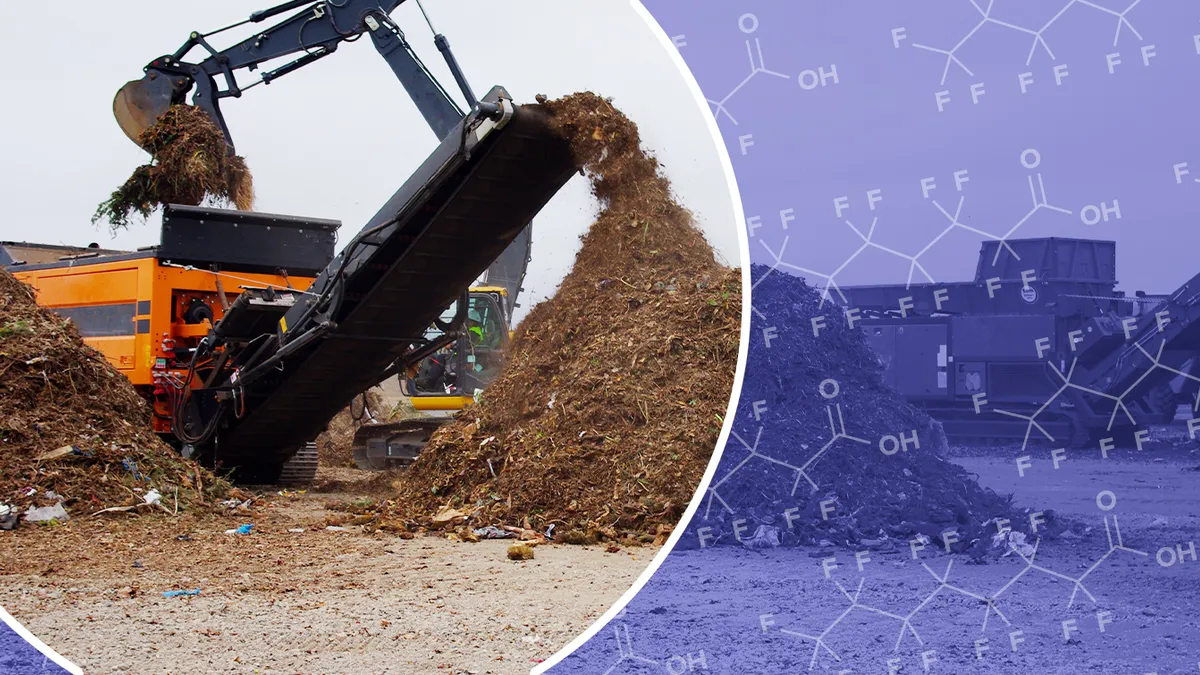
 Photo illustration by Brian Tucker/Waste Dive; Photograph by Philip Rozenski via Getty Images/Waste Dive
Photo illustration by Brian Tucker/Waste Dive; Photograph by Philip Rozenski via Getty Images/Waste Dive Deep Dive
Deep Dive'We can never get to zero': Organics recyclers face hard choices in responding to PFAS contamination
Composting and biosolids stakeholders worry regulations will decimate their industry, while environmental and health groups say action is critical.
By E.A. Crunden • Oct. 19, 2020 -
Waste Management updates sustainability plan with 2025 targets focused on climate
Existing 2038 sustainability goals haven't changed, but executives recognized the need for more near-term progress. Procuring more renewable energy and reducing recycling contamination are among the newly announced priorities.
By Cole Rosengren • Updated Oct. 15, 2020 -
Texas conference highlights growing PFAS, environmental justice concerns
Speakers at the 2020 Texas Recycling and Composting Summit covered PFAS contamination in biosolids, a state market development study, racial issues in the industry and more.
By E.A. Crunden • Oct. 13, 2020 -
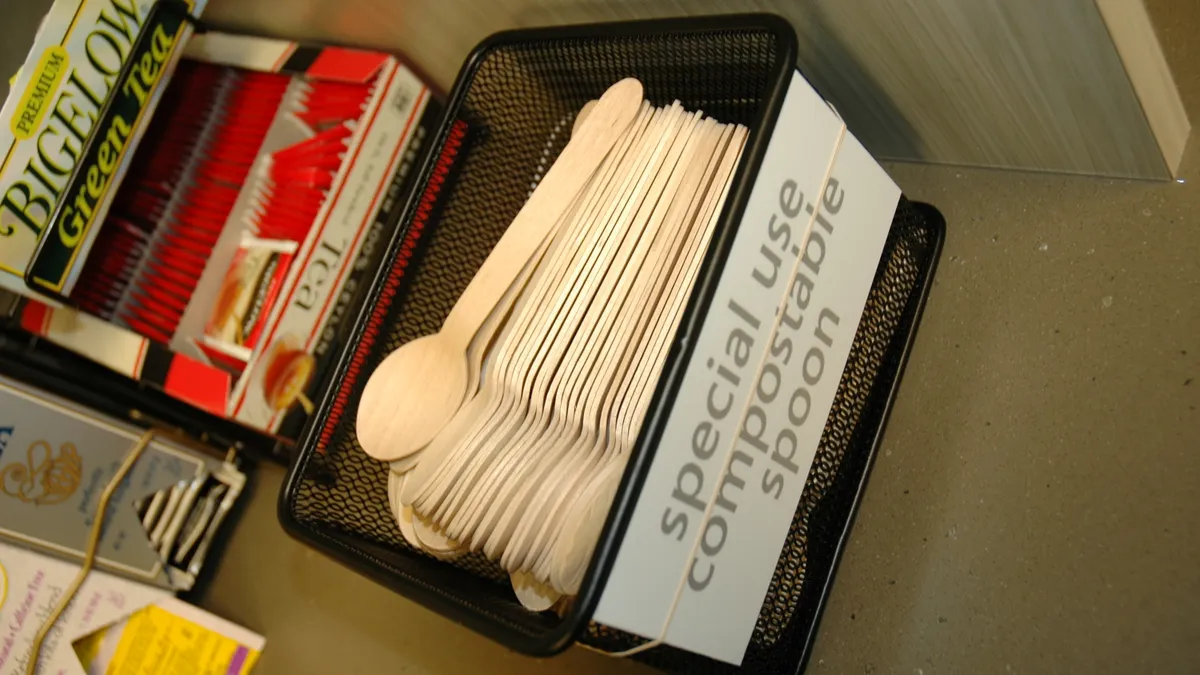
 Retrieved from Wonderlane.
Retrieved from Wonderlane.
New guidelines aim to address labeling confusion for compostable packaging
The Biodegradable Products Institute will offer manufacturers input on labeling and identification strategies — addressing a long-running problem for organics diversion and an uptick in legislative attention.
By E.A. Crunden • Oct. 5, 2020 -
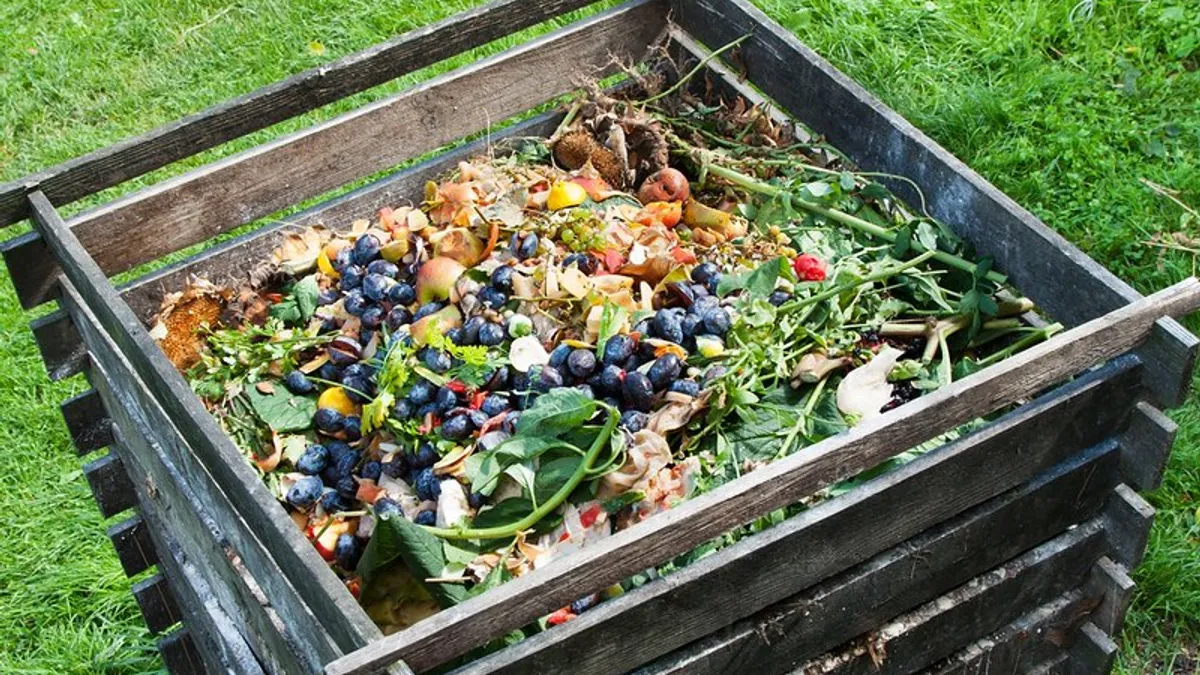
 Walker, Trish. (2020). "Composting" [Photograph]. Retrieved from Flickr.
Walker, Trish. (2020). "Composting" [Photograph]. Retrieved from Flickr.
Multi-state West Coast initiative enlists food retailers in push to reduce waste 50% by 2030
Led by the Pacific Coast Collaborative, a growing voluntary agreement aims to support goals across the region through public-private partnerships and on-the-ground collaboration, as well as measurement and reporting metrics.
By E.A. Crunden • Sept. 23, 2020 -
Q&A
New York sanitation commissioner warns against 'devastating' budget cuts ahead of resignation
After six-plus years on the job, Kathryn Garcia is considering a run for mayor. In an exit interview, she discourages further layoffs, forecasts more commercial waste zone delays and says "zero waste" by 2030 is likely unattainable.
By Cole Rosengren • Sept. 14, 2020 -
Pittsburgh joins 10-city cohort to curb food waste
The Natural Resources Defense Council's Food Matters Initiative will help the chosen cities overcome common barriers to preventing food waste, including a lack of data and resources.
By Cailin Crowe • Sept. 2, 2020 -
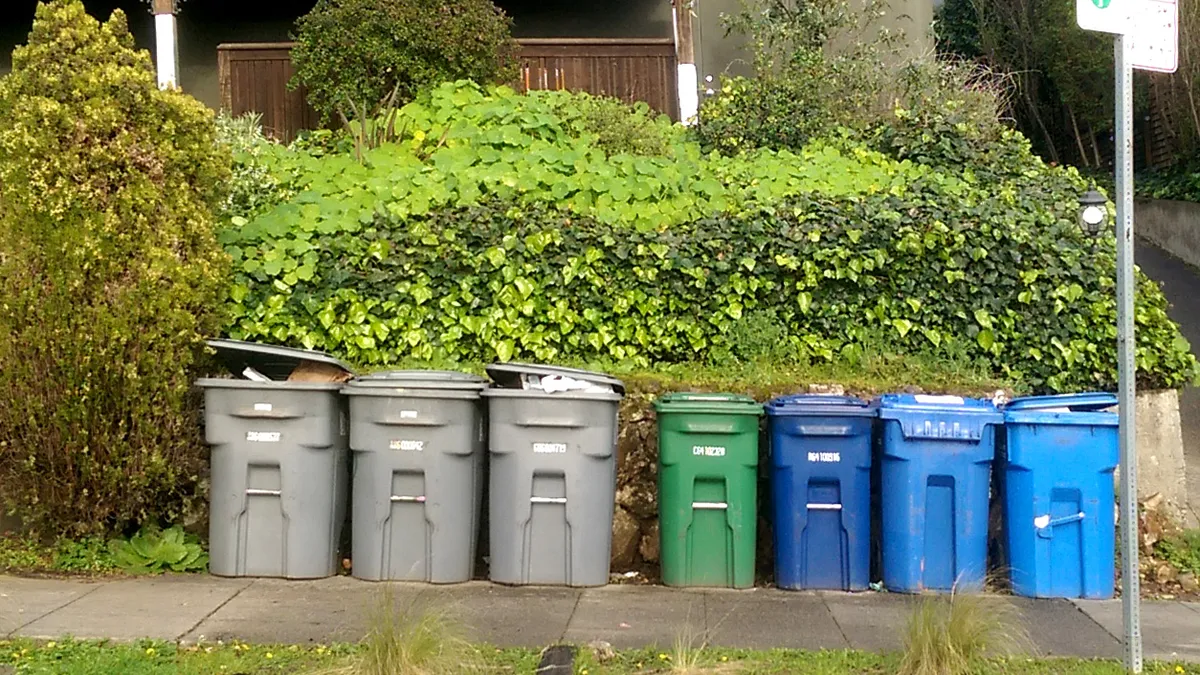
 Retrieved from Wikimedia Commons.
Retrieved from Wikimedia Commons.
SWEEP standard coming to fruition with industry support and pilot cities
After years of work, an accreditation system modeled after LEED is reaching a notable milestone. Those behind it hope to improve data standardization and drive sustainable materials management policies around the country.
By Cole Rosengren • Updated Aug. 31, 2020 -
Q&A
Wastequip aims to develop product GHG emission scores as part of new sustainability program
VP Kristin Kinder cited customer demand and industry trends as motivating factors behind a step many equipment manufacturers have yet to take, while also discussing diversity and inclusion efforts.
By Cole Rosengren • Aug. 25, 2020 -
Chicago anaerobic digester, urban farm project secures final funding for $32M campus
The facility, slated for a brownfield site, is expected to process 85,000 tons of organics annually when it opens in 2022. Backers describe it as a positive step toward environmental justice in the area.
By Katie Pyzyk • Aug. 20, 2020 -
Food waste coalition launches with 14 major manufacturers and retailers
The group, whose members include General Mills, Kellogg, Nestlé and Walmart, have targeted cutting global food loss per capita in half by 2025.
By Lillianna Byington • Aug. 19, 2020 -
Industry-supported organics hauling bill comes up short in California legislature
Proponents say AB 2959 would clarify a loophole allowing smaller haulers to undercut franchise agreements and hinder progress toward state diversion targets. Critics said it would hurt the state's efforts to curb organic waste.
By E.A. Crunden • Aug. 19, 2020 -
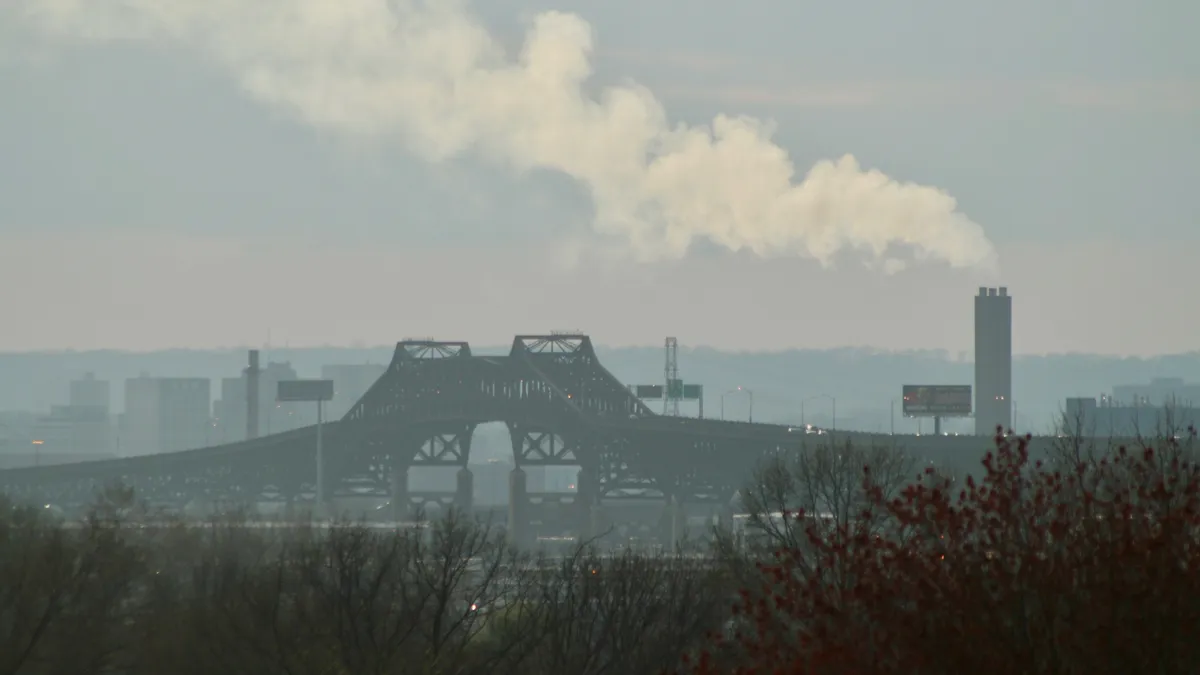
 The image by Kai Schreiber is licensed under CC BY-SA 2.0
The image by Kai Schreiber is licensed under CC BY-SA 2.0 Deep Dive
Deep DiveNew Jersey governor signs landmark environmental justice bill with big permit implications
The long-anticipated legislation had key backing from community groups. Despite some business opposition and industry trepidation, waste and recycling stakeholders also expressed support.
By E.A. Crunden • Updated Sept. 18, 2020 -
Halfway through an upended year, 8 big questions remain for waste and recycling
Back in January, Waste Dive laid out guiding themes for coverage around safety, M&A, sustainability, policy, organics and PFAS. Now, the pandemic has changed many of them and racial justice is also receiving heightened attention.
By Cole Rosengren , E.A. Crunden • Updated July 28, 2020 -
Major Connecticut WTE facility closing by 2022, waste to be exported
The expected move comes after plans to refurbish the Materials Innovation Recovery Authority's aging RDF facility fell apart for a host of reasons.
By Cole Rosengren • Updated Dec. 10, 2020 -
House Democrats back EPR, other recycling mandates in new climate plan
The lengthy document from the House Select Committee on the Climate Crisis endorses legislation like the Break Free From Plastic Pollution Act and hints at how Democrats could tackle policy on a wide range of emissions sources.
By E.A. Crunden • July 7, 2020 -
Public and private sector leaders project long-term changes due to coronavirus
During last week's SWANApalooza, Waste Connections, DSNY and other service providers discussed expectations for operational and fiscal changes to last into at least 2021.
By Cole Rosengren • June 29, 2020 -
Waste industry focuses on PFAS strategies, research as long-term concerns mount
This year's SWANApalooza featured numerous sessions on PFAS management and treatment, underscoring the heightened attention around "forever chemicals" at landfills and other facilities.
By E.A. Crunden • June 26, 2020

